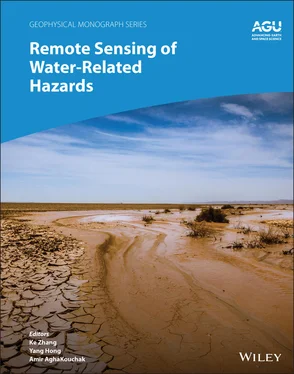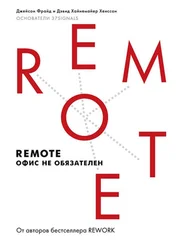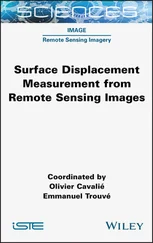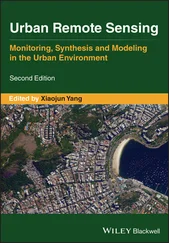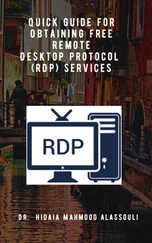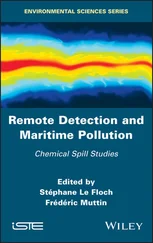Remote Sensing of Water-Related Hazards
Здесь есть возможность читать онлайн «Remote Sensing of Water-Related Hazards» — ознакомительный отрывок электронной книги совершенно бесплатно, а после прочтения отрывка купить полную версию. В некоторых случаях можно слушать аудио, скачать через торрент в формате fb2 и присутствует краткое содержание. Жанр: unrecognised, на английском языке. Описание произведения, (предисловие) а так же отзывы посетителей доступны на портале библиотеки ЛибКат.
- Название:Remote Sensing of Water-Related Hazards
- Автор:
- Жанр:
- Год:неизвестен
- ISBN:нет данных
- Рейтинг книги:5 / 5. Голосов: 1
-
Избранное:Добавить в избранное
- Отзывы:
-
Ваша оценка:
- 100
- 1
- 2
- 3
- 4
- 5
Remote Sensing of Water-Related Hazards: краткое содержание, описание и аннотация
Предлагаем к чтению аннотацию, описание, краткое содержание или предисловие (зависит от того, что написал сам автор книги «Remote Sensing of Water-Related Hazards»). Если вы не нашли необходимую информацию о книге — напишите в комментариях, мы постараемся отыскать её.
Remote Sensing of Water-Related Hazards Remote Sensing of Water-Related Hazards
The American Geophysical Union promotes discovery in Earth and space science for the benefit of humanity. Its publications disseminate scientific knowledge and provide resources for researchers, students, and professionals.
Remote Sensing of Water-Related Hazards — читать онлайн ознакомительный отрывок
Ниже представлен текст книги, разбитый по страницам. Система сохранения места последней прочитанной страницы, позволяет с удобством читать онлайн бесплатно книгу «Remote Sensing of Water-Related Hazards», без необходимости каждый раз заново искать на чём Вы остановились. Поставьте закладку, и сможете в любой момент перейти на страницу, на которой закончили чтение.
Интервал:
Закладка:
Library of Congress Cataloging‐in‐Publication Data
Names: Zhang, Ke (Professor), editor. | Hong, Yang, 1973– editor. | AghaKouchak, Amir, editor.
Title: Remote sensing of water‐related hazards / Ke Zhang, Yang Hong, Amir AghaKouchak, editors.
Description: Hoboken, NJ: Wiley‐American Geophysical Union, 2022. | Series: Geophysical monograph series 271 | Includes bibliographical references and index.
Identifiers: LCCN 2021056639 (print) | LCCN 2021056640 (ebook) | ISBN 9781119159124 (cloth) | ISBN 9781119159155 (adobe pdf) | ISBN 9781119159148 (epub)
Subjects: LCSH: Hydrological forecasting. | Remote sensing. Classification: LCC GB845 .R46 2022 (print) | LCC GB845 (ebook) | DDC 551.48–dc23/eng/20211214
LC record available at https://lccn.loc.gov/2021056639LC ebook record available at https://lccn.loc.gov/2021056640
Cover Design: Wiley
Cover Image: © Amir AghaKouchak (@aghakouchak)
LIST OF CONTRIBUTORS
Amir AghaKouchakDepartment of Civil and Environmental Engineering University of California, Irvine California, USA
Howard B. BluesteinSchool of Meteorology University of Oklahoma Norman, Oklahoma, USA
Guoding ChenState Key Laboratory of Hydrology‐Water Resources and Hydraulic Engineering, and College of Hydrology and Water Resources Hohai University Nanjing, China
Mengye ChenHydrology and Water Security Program School of Civil Engineering and Environmental Science University of Oklahoma Norman, Oklahoma, USA
Dennis L. CorwinUnited States Salinity Laboratory Agricultural Research Service United States Department of Agriculture Riverside, California, USA
Shang GaoHydrology and Water Security Program School of Civil Engineering and Environmental Science University of Oklahoma Norman, Oklahoma, USA
Jonathan J. GourleyHydrometeorology and Remote Sensing Laboratory School of Civil Engineering and Environmental Sciences University of Oklahoma and NOAA National Severe Storms Laboratory and Cooperative Institute for Mesoscale Meteorological StudiesUniversity of OklahomaNorman, Oklahoma, USA
Emad HasanCenter for Space Research The University of Texas at Austin Austin, Texas, USA and Geology Department Faculty of ScienceDamietta University New Damietta, Egypt
Yang HongHydrometeorology and Remote Sensing LaboratorySchool of Civil Engineering and Environmental Sciences University of Oklahoma Norman, Oklahoma, USA and Advanced Radar Research Center, and Center for Spatial Analysis National Weather Center Norman, Oklahoma, USA
Kazuki InoueInstitute of Industrial Science University of Tokyo Tokyo, Japan
Zaw Myo KhaingState Key Laboratory of Hydrology‐Water Resources and Hydraulic Engineering, and Yangtze Institute for Conservation and Development, and College of Hydrology and Water Resources Hohai University Nanjing, China
Xin LiCollege of Hydrology and Water Resources Hohai University Nanjing, China
Yunping LiState Key Laboratory of Hydrology‐Water Resources and Hydraulic Engineering, and Yangtze Institute for Conservation and Development, and College of Hydrology and Water Resources Hohai University Nanjing, China
Zhi LiHydrology and Water Security Program School of Civil Engineering and Environmental Science University of Oklahoma Norman, Oklahoma, USA
Zhijia LiCollege of Hydrology and Water Resources Hohai University Nanjing, China
Linxin LiuState Key Laboratory of Hydrology‐Water Resources and Hydraulic Engineering, and Yangtze Institute for Conservation and Development, and College of Hydrology and Water Resources Hohai University Nanjing, China
Wen LiuGraduate School of Engineering Chiba University Chiba, Japan
Meixia LvKey Laboratory of Regional Climate–Environment for Temperate East Asia Institute of Atmospheric Physics Chinese Academy of Sciences Beijing, China
Feng LyuInstitute of Remote Sensing and Geographical Information Systems School of Earth and Space Sciences Peking University Beijing, China
Meihong MaSchool of Geographic and Environmental Sciences Tianjin Normal University Tianjin, China
Zhuguo MaKey Laboratory of Regional Climate–Environment for Temperate East Asia Institute of Atmospheric Physics Chinese Academy of Sciences Beijing, China and College of Earth and Planetary Sciences University of Chinese Academy of Sciences Beijing, China
Ziqiang MaInstitute of Remote Sensing and Geographical Information Systems School of Earth and Space Sciences Peking University Beijing, China
Elia ScudieroDepartment of Environmental Sciences University of California Riverside, California, USA
Guoqiang TangCentre for Hydrology University of Saskatchewan Canmore, Alberta, Canada
Ran TaoState Key Laboratory of Hydrology‐Water Resources and Hydraulic Engineering and Yangtze Institute for Conservation and Development, and College of Hydrology and Water Resources Hohai UniversityJoint Laboratory for Hydrometeorological Studies Hohai University Nanjing, China
Aondover TarhuleDepartment of Geography, Geology, and the Environment Illinois State University Normal, Illinois, USA
Humberto VergaraHydrometeorology and Remote Sensing Laboratory School of Civil Engineering and Environmental Sciences, and Cooperative Institute for Mesoscale Meteorological Studies University of Oklahoma Norman, Oklahoma, USA and Advanced Radar Research Center, and Center for Spatial AnalysisNational Weather Center and NOAA National Severe Storms Laboratory Norman, Oklahoma, USA
Zhanming WanColaberry Inc. Creve Coeur, Missouri, USA and The Climate Corporation Dallas, Texas, USA
Sheng WangState Key Laboratory of Hydrology‐Water Resources and Hydraulic Engineering, and Yangtze Institute for Conservation and Development, and College of Hydrology and Water Resources Hohai University Nanjing, China
Tsechun WangInstitute of Remote Sensing and Geographical Information Systems School of Earth and Space Sciences Peking University Beijing, China
Yi XiaState Key Laboratory of Hydrology‐Water Resources and Hydraulic Engineering, and College of Hydrology and Water Recourses Hohai University Nanjing, China
Wentao XiongInstitute of Remote Sensing and Geographical Information Systems School of Earth and Space Sciences Peking University Beijing, China
Xianwu XueSystems Research GroupEnvironmental Modeling Center United States National Centers for Environmental PredictionCollege Park, Maryland, USA
Fumio YamazakiNational Research Institute for Earth Science and Disaster Resilience Ibaraki, Japan
Ke ZhangState Key Laboratory of Hydrology‐Water Resources and Hydraulic Engineering, and Yangtze Institute for Conservation and Development, and College of Hydrology and Water Resources, and CMA‐HHU Joint Laboratory for Hydrometeorological Studies Hohai University Nanjing, China
PREFACE
Water‐related hazards—including floods, droughts, rainfall‐triggered landslides, soil salinization—and their impacts have increased significantly in the past decades. This increase has spurred research into improving monitoring and prediction, understanding the underlying drivers, implementing various mitigation and adaptation strategies, and identifying interconnectivity with other factors such as climate change, population growth, exposure, and socioeconomic development. The detection, monitoring, and forecasting of water hazards is critical to develop adaptation and mitigation measures and to prevent natural hazards from becoming human disasters.
Читать дальшеИнтервал:
Закладка:
Похожие книги на «Remote Sensing of Water-Related Hazards»
Представляем Вашему вниманию похожие книги на «Remote Sensing of Water-Related Hazards» списком для выбора. Мы отобрали схожую по названию и смыслу литературу в надежде предоставить читателям больше вариантов отыскать новые, интересные, ещё непрочитанные произведения.
Обсуждение, отзывы о книге «Remote Sensing of Water-Related Hazards» и просто собственные мнения читателей. Оставьте ваши комментарии, напишите, что Вы думаете о произведении, его смысле или главных героях. Укажите что конкретно понравилось, а что нет, и почему Вы так считаете.
